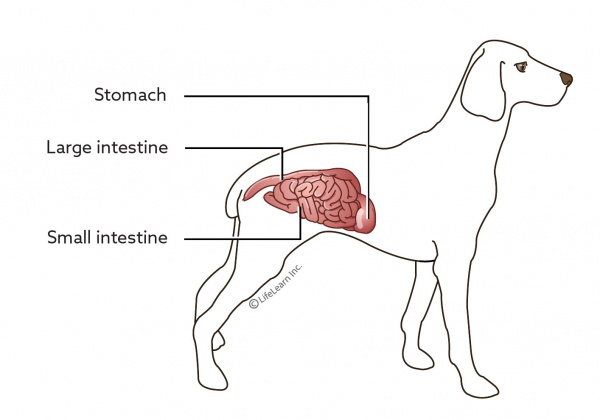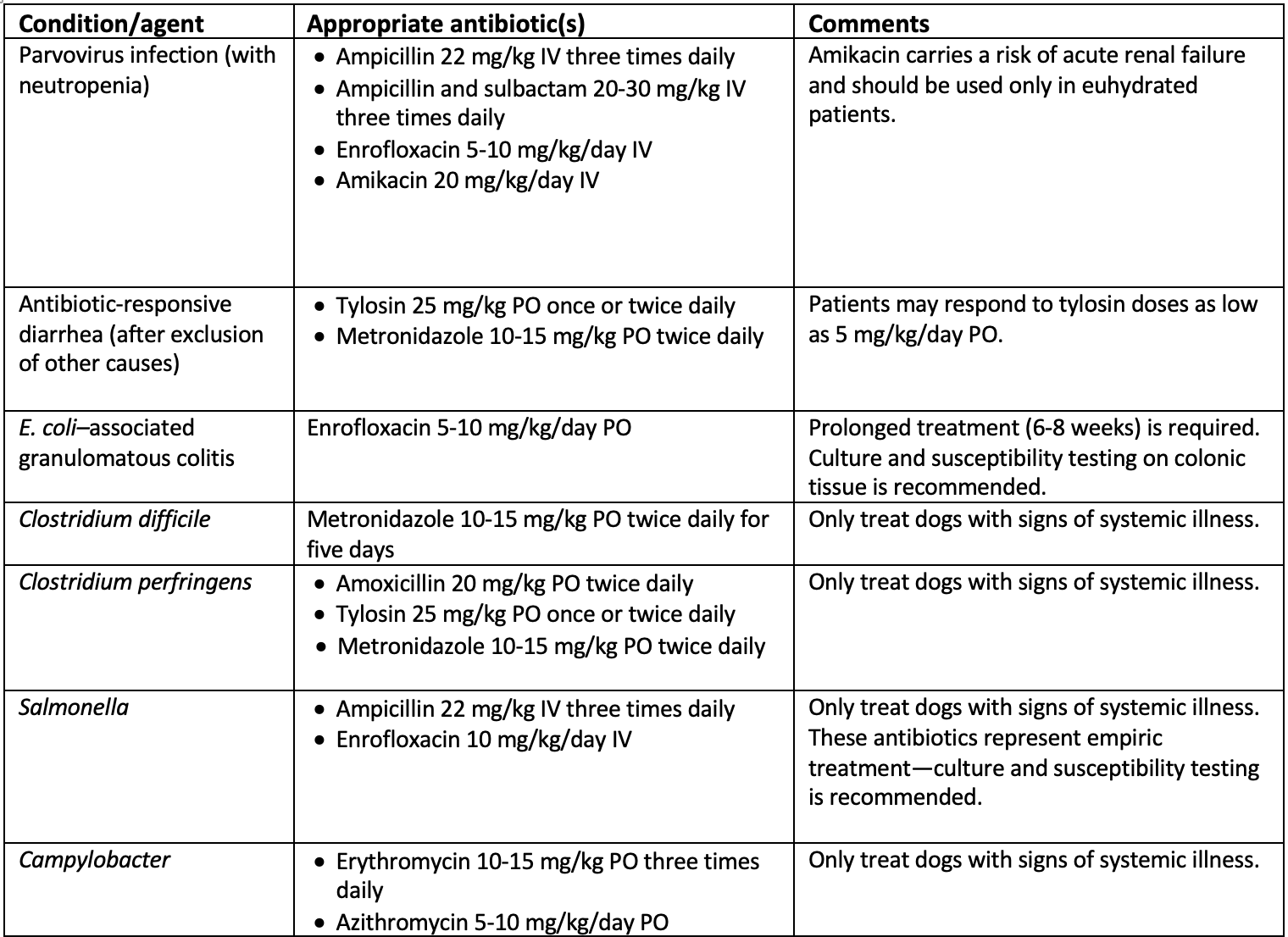What causes liver enlargement in dogs
What Causes Liver Enlargement In Dogs. Candy gum toothpaste baked goods and some diet foods are sweetened with xylitol. Enlarged liver dogs liver disease dog failure stages Causes of Liver Failure in Dogs Acute liver failure is most often caused by infectious agents or toxins poor flow of fluids into the liver and surrounding tissues perfusion hypoxia inability to breathe drugs or chemicals that are destructive to the liver hepatotoxic and excess exposure to heat. The most common reason for this is the presence of cancer or tumors in the body including. Debra- When there is a rise in alkaline phosphatase without a rise in other liver enzymes in an older dog the two most common causes are probably hyperadrenocorticism HAC Cushings disease and nodular hyperplasia of the liver.
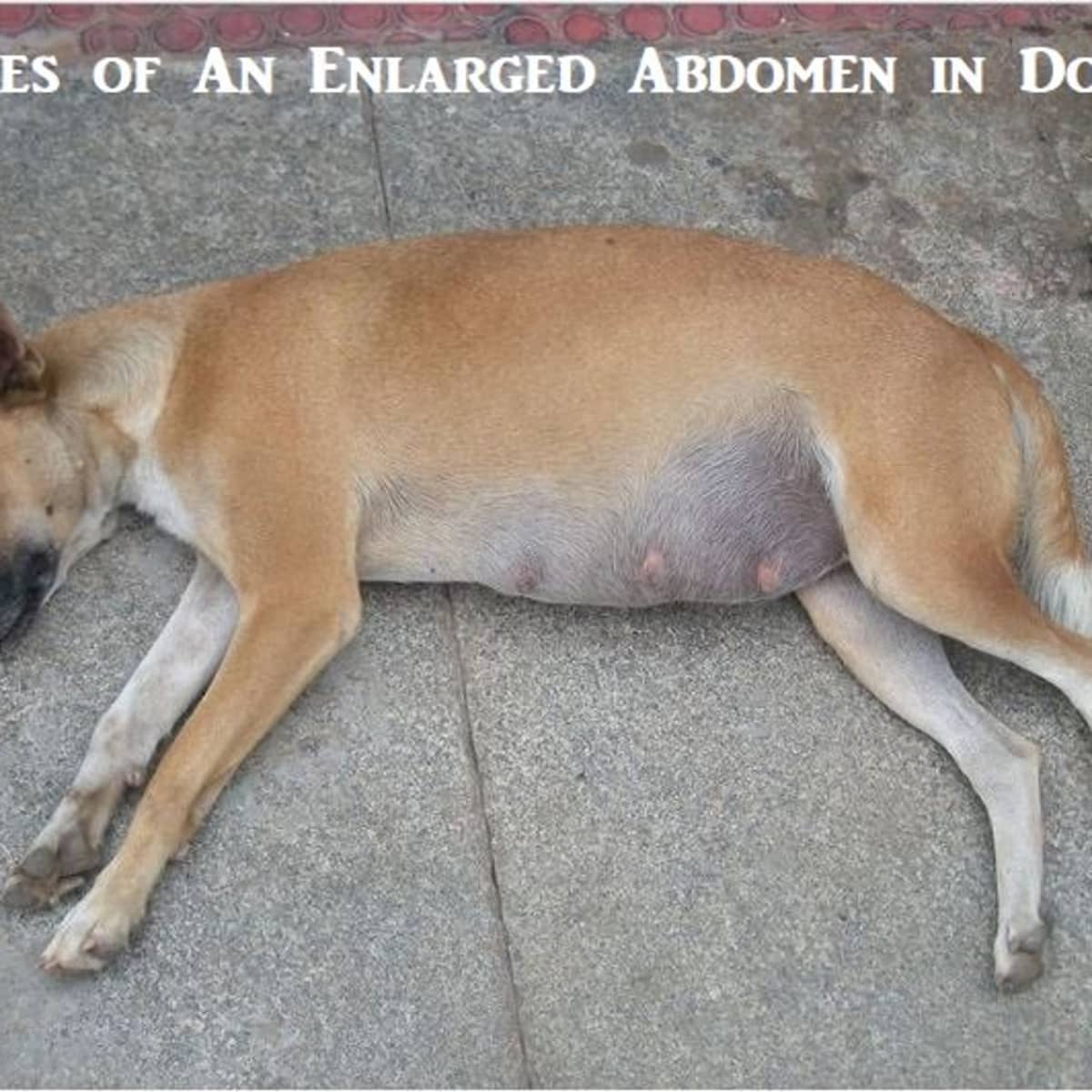 15 Potential Causes Of Abdominal Enlargement In Dogs Pethelpful From pethelpful.com
15 Potential Causes Of Abdominal Enlargement In Dogs Pethelpful From pethelpful.com
Xylitol and paracetamol are commonly encountered substances which can cause liver toxicity in dogs. According to the Merck Veterinary Manual. An enlarged liver in dogs can often be accompanied by ascites or fluid accumulation in the abdomen. Heavy metals such as lead mercury and cadmium. In this condition cells and other substances from other parts of the body start to infiltrate into the spleen and cause an enlargement. Enlargement in the entire liver usually indicates inflammation or infection.
While there are a few different liver issues or diseases that canines can go through they all are pretty much caused by.
An enlarged liver in dogs can often be accompanied by ascites or fluid accumulation in the abdomen. Signs that a dog has liver disease can vary and include loss of appetite vomiting stomach ulceration diarrhea seizures or other neurologic problems fever blood clotting problems jaundice a yellow tinge noticeable in the skin mucous membranes and eyes fluid collection in the abdomen excessive urination and thirst changes in liver size and weight loss. There are many natural and man-made substances in the environment that can damage a dogs liver. Portosystemic shunts occur when a vein connects the blood supply from the intestines to the heart bypassing the liver shunting. Answered by Dante Mraz on Sat Mar 20 2021 442 AM. Enlargement in the entire liver usually indicates inflammation or infection.
 Source: whole-dog-journal.com
Source: whole-dog-journal.com
An enlarged liver is most commonly found in older dogs. There are a number of reasons that may result in an enlarged liver in dogs. Cancer is for instance probably the most common cause of an enlarged liver and spleen in puppies. Those with ascites will have an abnormally swollen belly. Portosystemic shunts occur when a vein connects the blood supply from the intestines to the heart bypassing the liver shunting.
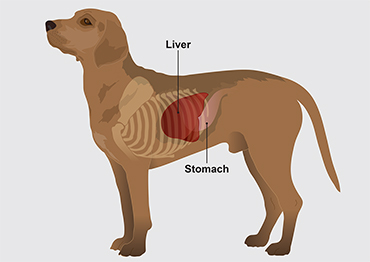 Source: pdsa.org.uk
Source: pdsa.org.uk
In this condition cells and other substances from other parts of the body start to infiltrate into the spleen and cause an enlargement. The primary cause of enlarged liver and spleen in dogs is usually some other underlying medical condition that has developed substantially. Endocrine diseases including diabetes Cushings Disease or hyperthyroidism. Some plants and herbs such as ragwort certain mushrooms and blue-green algae. Ehrlichiosis a tick-borne disease may also cause liver enlargement in dogs.
 Source: dogdiscoveries.com
Source: dogdiscoveries.com
What can cause a dogs liver to enlarge. An enlarged liver can be a sign of a number of different liver diseases. Xylitol and paracetamol are commonly encountered substances which can cause liver toxicity in dogs. Rat or mouse poison. Liver disease can have a number of different causes such as.
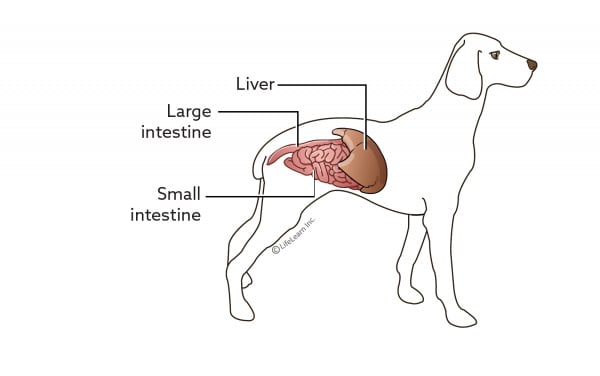 Source: vcahospitals.com
Source: vcahospitals.com
Trauma to the liver due to an accident or heatstroke. Causes of Liver Problems in Dogs. An enlarged liver is most commonly found in older dogs. Liver disease is more common in older adult dogs than it is in younger dogs. What can cause a dogs liver to enlarge.
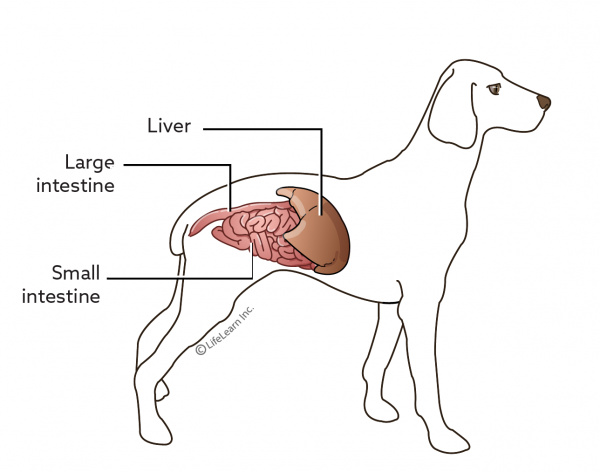 Source: vcahospitals.com
Source: vcahospitals.com
Enlarged liver dogs liver disease dog failure stages Causes of Liver Failure in Dogs Acute liver failure is most often caused by infectious agents or toxins poor flow of fluids into the liver and surrounding tissues perfusion hypoxia inability to breathe drugs or chemicals that are destructive to the liver hepatotoxic and excess exposure to heat. Signs that a dog has liver disease can vary and include loss of appetite vomiting stomach ulceration diarrhea seizures or other neurologic problems fever blood clotting problems jaundice a yellow tinge noticeable in the skin mucous membranes and eyes fluid collection in the abdomen excessive urination and thirst changes in liver size and weight loss. An enlarged liver can be a sign of a number of different liver diseases. It can also be a symptom of chronic conditions such as hepatitis or chronic liver disease. Other causes of liver disease may include.
 Source: thesprucepets.com
Source: thesprucepets.com
Nodular hyperplasia is a common benign change to the liver in elderly dogs there is no treatment required but it can cause elevated liver enzymes. Other causes of liver disease may include. Portosystemic shunts occur when a vein connects the blood supply from the intestines to the heart bypassing the liver shunting. According to the Merck Veterinary Manual. However not all spleen masses in dogs are cancerous the enlargement may also be due to a benign tumor.
 Source: wagwalking.com
Source: wagwalking.com
Those with ascites will have an abnormally swollen belly. Cancer of the liver hepatocellular carcinoma Cysts or gallstones which can obstruct the bile duct. Ehrlichiosis a tick-borne disease may also cause liver enlargement in dogs. There are a few reasons your dog can develop an enlarged liver. In the case of poisoning your dog needs immediate veterinary care.
 Source: whole-dog-journal.com
Source: whole-dog-journal.com
They are a kind of dog worms that not only affect the heart of the dog. Portosystemic shunts occur when a vein connects the blood supply from the intestines to the heart bypassing the liver shunting. Candy gum toothpaste baked goods and some diet foods are sweetened with xylitol. An enlarged liver can be a sign of a number of different liver diseases. Debra- When there is a rise in alkaline phosphatase without a rise in other liver enzymes in an older dog the two most common causes are probably hyperadrenocorticism HAC Cushings disease and nodular hyperplasia of the liver.
 Source: pethelpful.com
Source: pethelpful.com
Some plants and herbs such as ragwort certain mushrooms and blue-green algae. They are a kind of dog worms that not only affect the heart of the dog. There are a number of diseases that can affect the functioning of a dogs liver and lead to enlargement. Acute liver failure can come on sudden and quick and is usually caused by poisoning. Those with ascites will have an abnormally swollen belly.
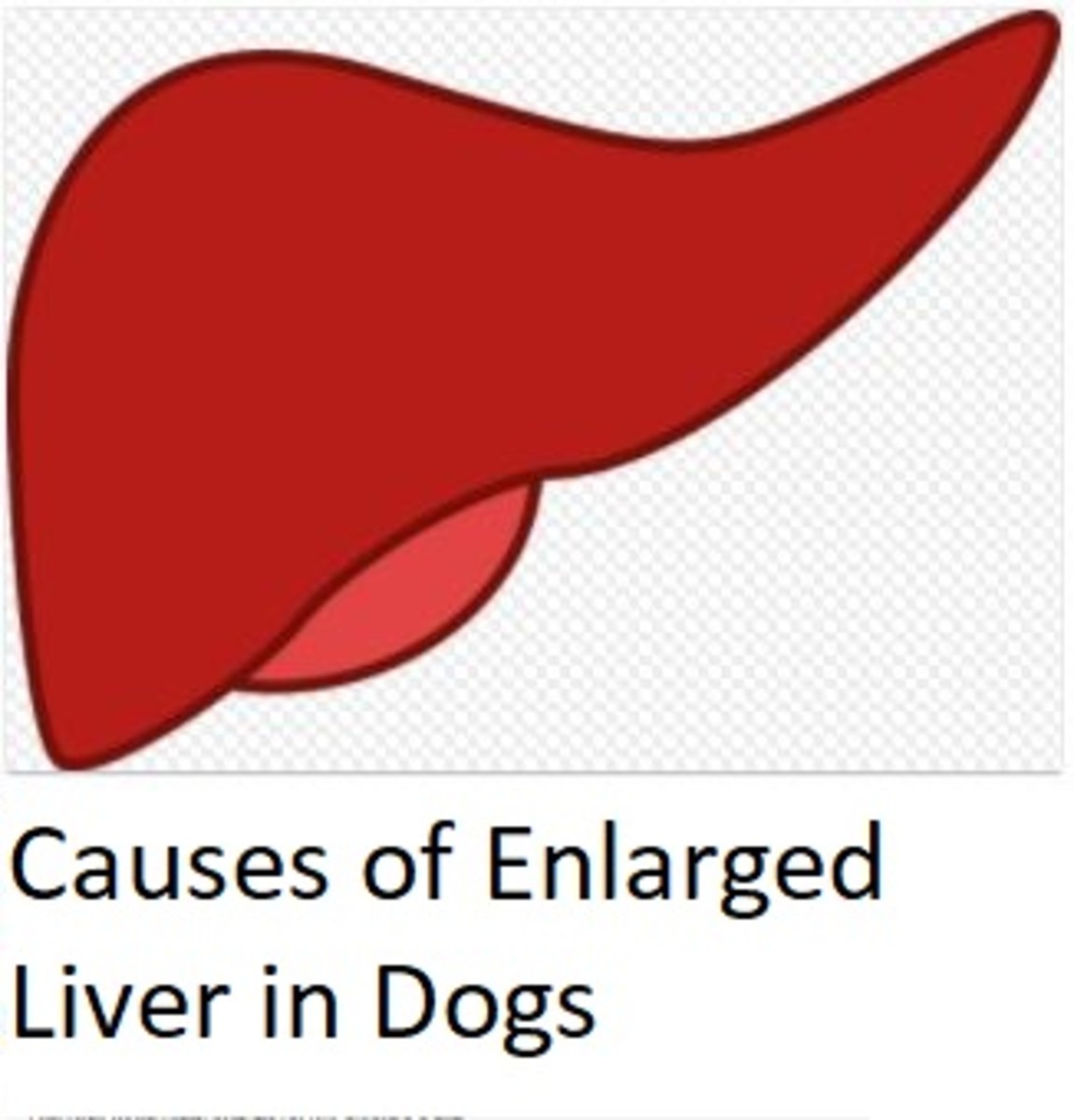 Source: dogdiscoveries.com
Source: dogdiscoveries.com
Its essential that the inflammation is diagnosed and treated early as the liver is a crucial organ that performs vital functions such as the removal of toxins from the blood the production of bile and the metabolism of proteins fats and carbohydrates. It can cause your dogs blood sugar to drop and can also cause liver failure. An enlarged liver in dogs can often be accompanied by ascites or fluid accumulation in the abdomen. The most common reason for this is the presence of cancer or tumors in the body including. Nodular hyperplasia can be seen on ultrasound exam sometimes but not always.
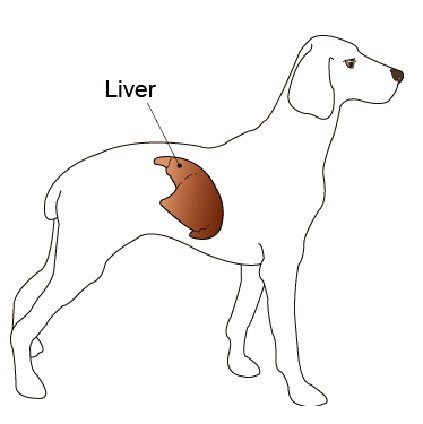 Source: pashudhanpraharee.com
Source: pashudhanpraharee.com
The cause of liver inflammation in dogs is sometimes idiopathic and at other times its due to the presence of underlying diseases. For example infections andor inflammation may lead to generalized symmetrical enlargement of the liver whereas tumors hemorrhages cysts or rotation of liver lobe may lead to asymmetrical or focal enlargement. Other causes of liver disease may include. Portosystemic shunts occur when a vein connects the blood supply from the intestines to the heart bypassing the liver shunting. Xylitol and paracetamol are commonly encountered substances which can cause liver toxicity in dogs.
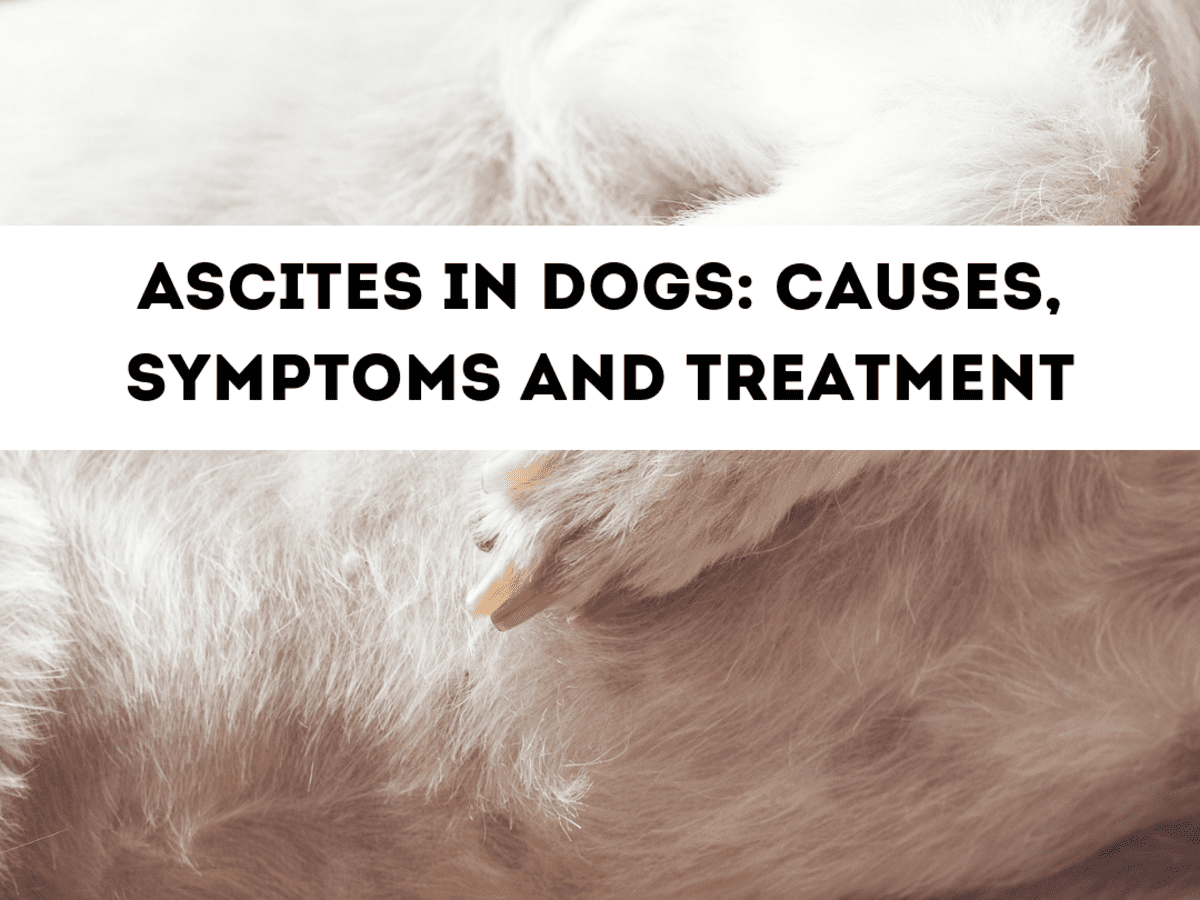 Source: pethelpful.com
Source: pethelpful.com
Its essential that the inflammation is diagnosed and treated early as the liver is a crucial organ that performs vital functions such as the removal of toxins from the blood the production of bile and the metabolism of proteins fats and carbohydrates. They are a kind of dog worms that not only affect the heart of the dog. For example infections andor inflammation may lead to generalized symmetrical enlargement of the liver whereas tumors hemorrhages cysts or rotation of liver lobe may lead to asymmetrical or focal enlargement. There are a number of diseases that can affect the functioning of a dogs liver and lead to enlargement. An enlarged liver is most commonly found in older dogs.
If you find this site beneficial, please support us by sharing this posts to your favorite social media accounts like Facebook, Instagram and so on or you can also save this blog page with the title what causes liver enlargement in dogs by using Ctrl + D for devices a laptop with a Windows operating system or Command + D for laptops with an Apple operating system. If you use a smartphone, you can also use the drawer menu of the browser you are using. Whether it’s a Windows, Mac, iOS or Android operating system, you will still be able to bookmark this website.



